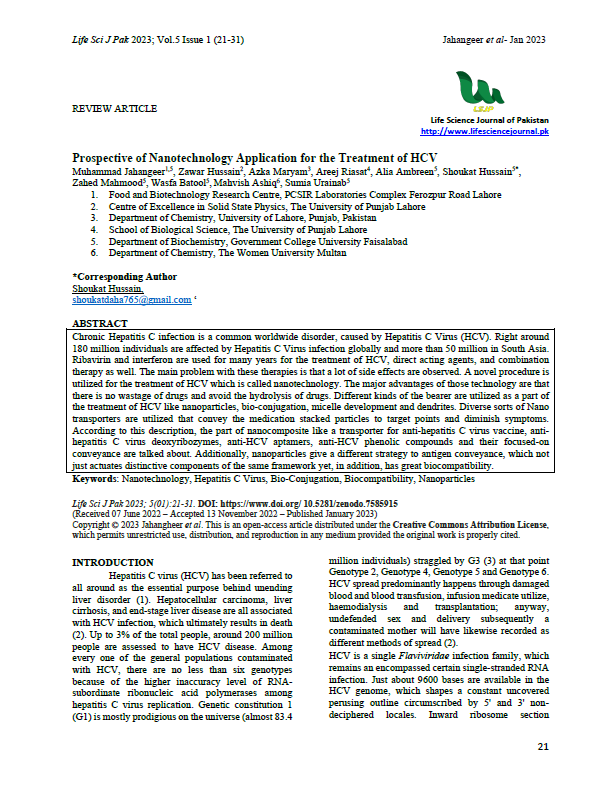Prospective of Nanotechnology Application for the Treatment of HCV
Main Article Content
Abstract
Chronic Hepatitis C infection is a common worldwide disorder, caused by Hepatitis C Virus (HCV). Right around 180 million individuals are affected by Hepatitis C Virus infection globally and more than 50 million in South Asia. Ribavirin and interferon are used for many years for the treatment of HCV, direct acting agents and combination therapy as well. The main problem of these therapies is that a lot of side effects are observed. A novel procedure is utilized for the treatment of HCV which is called nanotechnology. The major advantages of those technology are that there is no wastage of drug and avoid the hydrolysis of drugs. Different kinds of the bearer are utilized as a part of the treatment of HCV like nanoparticles, bio-conjugation, micelle development and dendrites. Diverse sorts of Nano transporters are utilized that convey the medication stacked particles to target point and diminish symptoms. According to this description, the part of nanocomposite like a transporter for anti-hepatitis C virus vaccine, anti- hepatitis C virus deoxyribozymes, anti-HCV aptamers, anti-HCV phenolic compounds and their focused-on conveyance are talked about. Additionally, nanoparticles give a different strategy to antigen conveyance, which not just actuates distinctive components of same framework yet in addition has great biocompatibility
Article Details

This work is licensed under a Creative Commons Attribution 4.0 International License.

